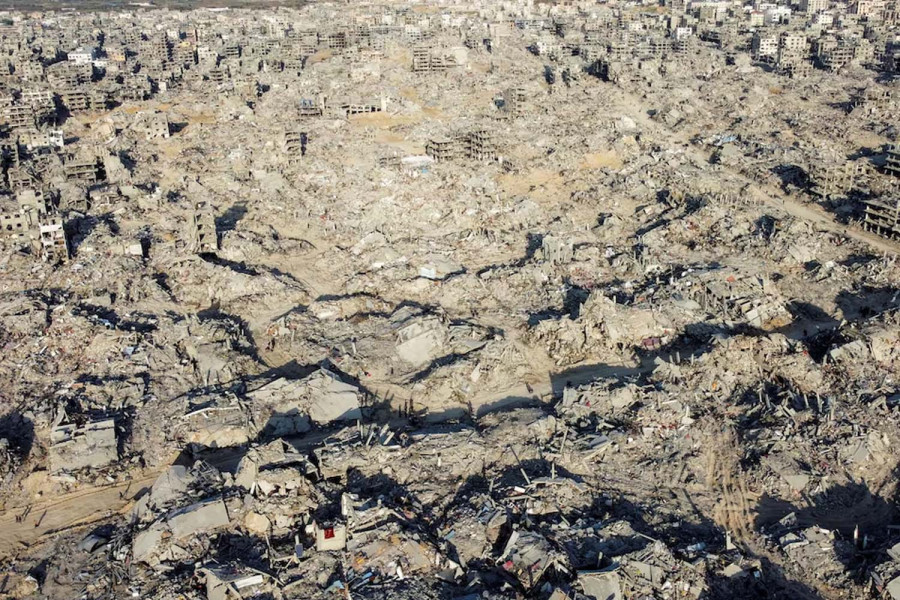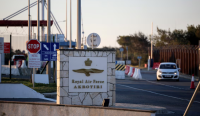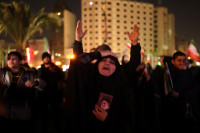World
Saudi Arabia spearheads Arab scramble for alternative to Trump’s Gaza plan
Draft ideas will be discussed at a meeting in Riyadh this month of countries including Saudi Arabia, Egypt, Jordan and the United Arab Emirates.
Reuters
Saudi Arabia is spearheading urgent Arab efforts to develop a plan for Gaza’s future as a counter to US President Donald Trump’s ambition for a Middle East Riviera cleared of its Palestinian inhabitants, 10 sources said.
Draft ideas will be discussed at a meeting in Riyadh this month of countries including Saudi Arabia, Egypt, Jordan and the United Arab Emirates. Proposals may involve a Gulf-led reconstruction fund and a deal to sideline Hamas, five of the people said.
Saudi Arabia and its Arab allies were aghast at Trump’s plan to “clean out” Palestinians from Gaza and resettle most of them in Jordan and Egypt, an idea immediately rejected by Cairo and Amman and seen in most of the region as deeply destabilising.
The dismay in Saudi Arabia was aggravated, sources said, because the plan would nix the kingdom’s demand for a clear path to Palestinian statehood as a condition to normalise ties with Israel - something that would also pave the way for an ambitious military pact between Riyadh and Washington, shoring up the kingdom’s defences against Iran.
Reuters spoke to 15 sources in Saudi Arabia, Egypt, Jordan and elsewhere to build a picture of the hurried efforts by Arab states to pull together existing proposals into a new plan they can sell to the US president - even potentially calling it a “Trump plan” to win his approval.
All the sources declined to be identified because the issue involves international or domestic sensitivities and they were not authorised to speak in public.
One Arab government source said at least four proposals had already been drafted for Gaza’s future, but an Egyptian proposal was now emerging as central to the Arab push for an alternative to Trump’s idea.
THE EGYPTIAN PROPOSAL
The latest Egyptian proposal involves forming a national Palestinian committee to govern Gaza without Hamas involvement, international participation in reconstruction without displacing Palestinians abroad, and movement towards a two-state solution, three Egyptian security sources said.
Saudi Arabia, Egypt, Jordan, the United Arab Emirates and Palestinian representatives will review and discuss the plan in Riyadh before it is presented at a scheduled Arab summit on February 27, the Arab government source said.
The role of Saudi Crown Prince Mohammed bin Salman, widely known as MbS, is shaping up to be key.
“We are telling the Americans we have a plan that works. Our meeting with MbS is going to be critical. He is taking the lead,” said a Jordanian official.
The crown prince had a warm relationship with the first Trump administration and is increasingly central to Arab ties with the United States during the new Trump era.
Long a major regional partner for the United States, the crown prince is expanding Saudi Arabia’s relationship through business and global power politics.
Saudi Arabia’s sovereign wealth fund is holding a conference in Miami this month that Reuters revealed Trump is expected to attend. Riyadh is also expected to host his coming talks with Russian President Vladimir Putin to try to end the Ukraine war.
The White House did not respond to several requests for comment on this story.
US Secretary of State Marco Rubio, speaking on Thursday, referred to the coming Arab meeting, saying: “Right now the only plan - they don’t like it - but the only plan is the Trump plan. So if they’ve got a better plan, now’s the time to present it.”
Spokespeople for Saudi Arabia, Egypt, Jordan, the UAE and Israel did not immediately respond to Reuters requests for comment.
BUFFER ZONE
Clear plans for Gaza’s post-war future have already proven hard to develop as they require positions on contentious debates regarding the territory’s internal governance, security management, funding and reconstruction.
Israel has already rejected any role for Hamas or the Palestinian Authority in governing Gaza, or ensuring security there. Arab countries and the United States have also said they do not want to put troops on the ground to do that.
Gulf states, which have historically paid for reconstruction in Gaza, have said they do not want to do so this time without guarantees that Israel will not again destroy what they build.
Jordan’s King Abdullah emphasised to Trump on Monday at their meeting in the White House that he was working with Saudi Arabia and Egypt on a Gaza plan that would work, a Jordanian official said.
Abdullah said in televised comments after the meeting that the countries would review an Egyptian plan and “we will be in Saudi Arabia to discuss how we can work with the president and the United States”.
Reuters could not immediately reach Jordan’s Foreign Minister Ayman Safadi for comment. After Abdullah’s meeting with Trump, Safadi said: “We are now working on crystallising the Arab plan”.
Initial proposals shared by the three Egyptian security sources relating to reconstruction and financing appear advanced.
A buffer zone and physical barrier would be erected to stop tunnels being built across Gaza’s border with Egypt. As soon as rubble is removed, 20 areas would be established as temporary living zones. Around 50 Egyptian and other foreign companies would be brought in to carry out the work.
Financing would involve international and Gulf money, said a regional source with knowledge of the matter. A potential fund could be named the Trump Fund for Reconstruction, the Arab government official said.
However, the most difficult issues around Gaza’s governance and internal security remain to be decided, the official said.
Forcing Hamas out of any role in Gaza would be critical, said the Arab official and the three Egyptian sources.
Hamas has previously said it is willing to cede government in Gaza to a national committee, but it would want a role in choosing its members and would not accept the deployment of any ground forces without its consent.
The three Egyptian sources said that while nothing in the plan was very new, they believed it was good enough to change Trump’s mind and that it could be imposed on Hamas and the Palestinian Authority under Mahmoud Abbas.
‘NOT PLEASED’
Saudi annoyance over Gaza had already been building before Trump’s announcement.
The kingdom had repeatedly said normalisation with Israel was conditional on a path to creating a Palestinian state in the Israeli-occupied West Bank, Gaza Strip and East Jerusalem.
That stance hardened as Saudi public anger grew at the destruction and death in Gaza. In November, the crown prince publicly accused Israel of genocide during an Islamic summit and doubled down on the need for a two-state solution.
Frustration was running high in the kingdom over the ongoing war, two regional intelligence sources said.
Washington appeared ready to push past Riyadh’s demand for two states. The day before his Gaza announcement, Trump was asked whether a normalisation deal could go ahead without a two-state solution. He said: “Saudi Arabia is going to be very helpful.”
Trump’s Middle East envoy Steve Witkoff had held meetings in Riyadh in late January. Two senior diplomats said Witkoff laid out a three-month timeline for the normalisation process.
But Saudi frustration quickly turned into surprise and then anger when Trump announced his Gaza idea. “He is not pleased,” a source close to the Saudi royal court said of Prince Mohammed’s reaction.
The level of anger was quickly evident in state media broadcasts - which analysts say are often a measure of official Saudi viewpoints - with television news reports personally excoriating Israeli Prime Minister Benjamin Netanyahu.
“They are outraged,” said Aziz Alghashian, a Saudi analyst familiar with official thinking, describing the mood among senior Saudi officials. “This is outrageous. More than frustration, this is on another level.”
Many experts say Trump may be using an old bargaining ploy from his diplomatic playbook, setting out an extreme position as an opening gambit for negotiations. During his first term, he often issued what were widely seen as over-the-top foreign policy pronouncements, many of which never came to fruition.
Still, it has complicated the normalisation talks.
Former Saudi intelligence head Prince Turki al-Faisal, who holds no current role in the government, said in a CNN interview last week that if Trump visited Riyadh, “I’m sure he will get an earful from the leadership here”.
Asked if he could see any prospect of normalisation talks advancing with Israel, he said: “Not at all”.




 9.7°C Kathmandu
9.7°C Kathmandu














